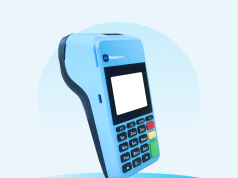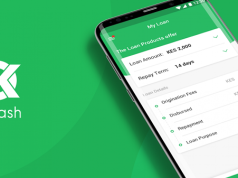Pursuing higher education can be a costly endeavor, especially in a developing country like Nigeria. With the rising costs of tuition, textbooks, and other expenses, many students find it difficult to finance their education. This is where student loans come in. In Nigeria, there are various options available for students to obtain financial aid in the form of student loans.
In this blog post, we will explore the requirements, application process, repayment options, and frequently asked questions regarding student loans in Nigeria. Whether you are a current student or planning to attend university in Nigeria, this guide will provide you with valuable information on how to finance your education through student loans.
Requirements For Students Loan In Nigeria
When it comes to obtaining a student loan in Nigeria, there are certain requirements that need to be met.
Here is a list of the essential criteria:
- Nigerian Citizenship: To be eligible for a student loan in Nigeria, you must be a Nigerian citizen.
- Admission Letter: You need to have an admission letter from a recognized higher education institution in Nigeria or abroad.
- Guarantor: A guarantor is required to secure the loan. This can be a parent, guardian, or any other individual who meets the specified criteria set by the loan provider.
- Proof of Identity: You will need to provide valid identification documents such as your National Identification Card, International Passport, or Driver’s License.
- Academic Records: Most loan providers require you to submit your academic records, including your O’Level results, JAMB/UTME scores, and any other relevant certificates or transcripts.
- Financial Need: Some student loans may have income-based requirements to determine financial need.
It’s important to note that the specific requirements may vary depending on the loan provider and the type of loan you are applying for. Make sure to check with the loan provider for their specific requirements.
How To Apply For Students Loan In Nigeria
Applying for a student loan in Nigeria may seem overwhelming, but with the right information, it can be a straightforward process.
Here are the steps you need to take to apply for a student loan:
- Gather Required Documents: Collect all the necessary documents for your loan application. These may include your admission letter, identification documents, academic records, and proof of financial need.
- Fill out the Application Form: Visit the loan provider’s website or contact their office to obtain the application form. Fill it out accurately and attach all the required documents.
- Submit the Application: Once you have completed the application form and gathered all the necessary documents, submit your application to the loan provider. Ensure that you meet any deadline requirements.
- Follow Up: After submitting your application, follow up with the loan provider to ensure they have received your application and to inquire about the next steps in the process.
- Wait for Approval: The loan provider will review your application and make a decision. This may take some time, so be patient. If approved, you will receive a notification.
- Disbursement: Once approved, the loan amount will be disbursed either directly to your educational institution or to your bank account, depending on the loan provider.
Remember, each loan provider may have specific application procedures and requirements, so it’s important to thoroughly research and follow their guidelines.
Read Also: How To Pay for Onlyfans Without a Credit Card
Repayments Option For Students Loan In Nigeria
Once you have obtained a student loan in Nigeria, it’s important to understand the repayment options available to you.
Here are some common repayment options for students loans in Nigeria:
- Monthly Installments: This is the most common repayment option, where you pay a fixed amount each month towards your loan. The amount is typically determined based on your loan amount and interest rate.
- Income-Based Repayment: Some loan providers offer income-based repayment plans, where your monthly payments are based on a percentage of your income. This can be beneficial for students who may not have a high income immediately after graduation.
- Graduated Repayment: This option allows you to start with lower monthly payments and gradually increase them over time. This can be helpful if you expect your income to increase in the future.
- Loan Forgiveness: In certain cases, such as working in public service or qualifying for specific loan forgiveness programs, a portion or the entire loan amount may be forgiven.
- Early Repayment: If you have the means, you can choose to make additional payments towards your loan to pay it off faster and potentially save on interest.
Remember, it’s important to understand the specific repayment terms and options offered by your loan provider. Make sure to read the loan agreement thoroughly and consult with the loan provider if you have any questions or concerns.
FAQS
How are student loan payments applied?
Student loan payments are typically applied to your loans in the following order: a. Interest: First, your payment covers any outstanding interest that has accrued on your loans since your last payment. b. Fees: If there are any fees associated with your loans, they may be paid next. c. Principal Balance: After interest and fees are satisfied, the remainder of your payment is applied to the principal balance of your loan.
How are student loan repayments deducted?
Student loan repayments can be deducted in several ways, including: a. Automatic Deductions: Many borrowers set up automatic monthly payments, where the repayment amount is deducted directly from their bank account. b. Payroll Deductions: Some employers offer payroll deduction programs, allowing the loan payment to be taken directly from your paycheck. c. Manual Payments: You can also make manual payments by logging into your loan servicer’s website and submitting payments online or by mail.
How long do you have to repay student loans?
The repayment period for student loans varies based on the type of loan and the repayment plan you choose. Common repayment terms include 10 years (standard plan), 20 or 25 years (extended or income-driven plans), and sometimes up to 30 years for larger loan balances. Private student loans may have different terms, so it’s important to check your loan agreement for specific details.
How do I push back my student loan repayment?
If you’re struggling to make your student loan payments, you may have options to temporarily postpone or reduce your payments.
Is student loan repayment back?
Student loan repayment never truly disappeared, but there have been temporary relief measures, like the CARES Act, that provided payment suspensions and 0% interest on federal student loans.
Conclusion
In this blog post, we have explored the requirements, application process, repayment options, and frequently asked questions regarding student loans in Nigeria. Pursuing higher education can be a costly endeavor, but with the information provided, you now have valuable knowledge on how to finance your education through student loans.
By understanding the requirements, application process, and repayment options, you are well-equipped to navigate the student loan landscape in Nigeria and finance your education effectively.






